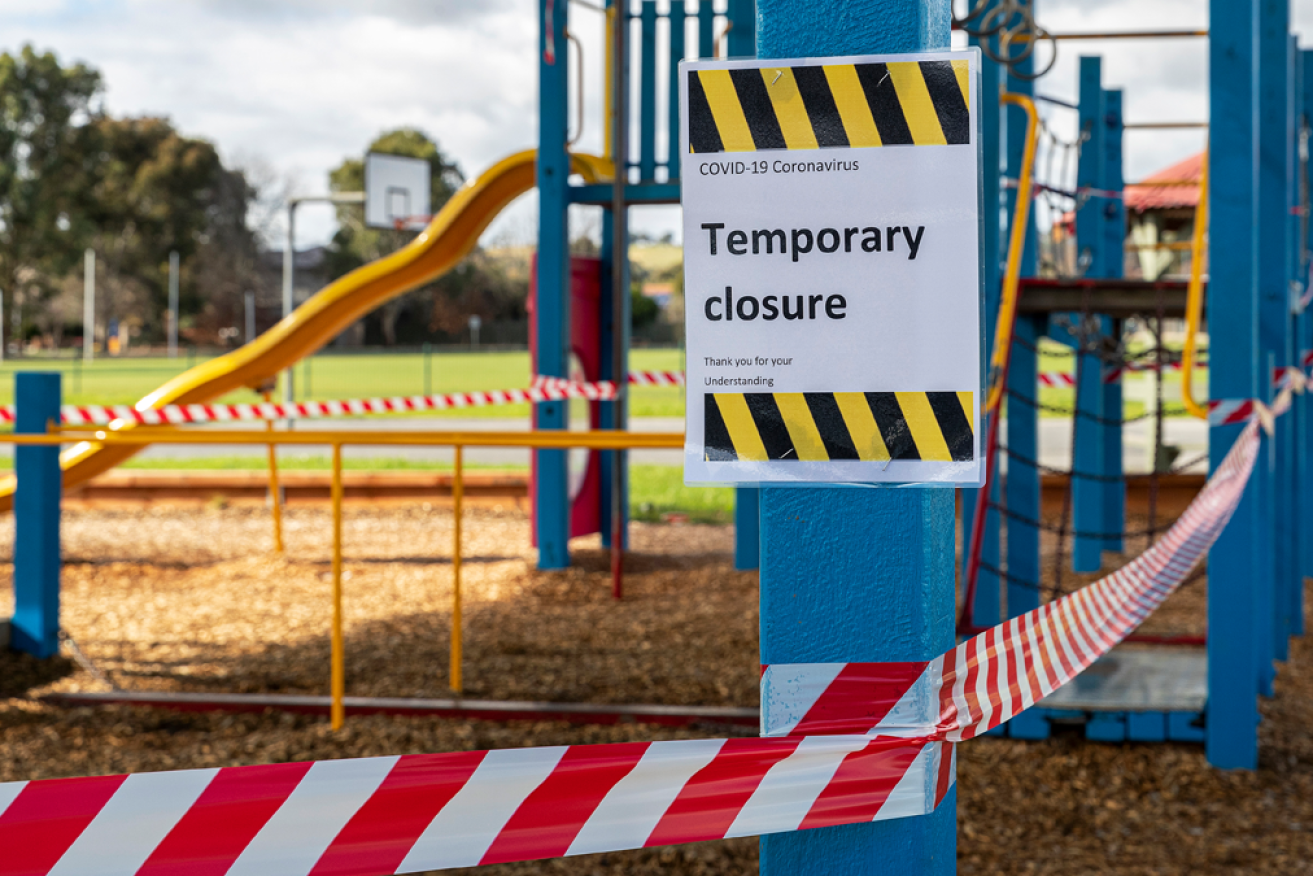Here’s what parents of toddlers and young children should know about COVID-19


Playgrounds were closed during the pandemic to protect young children and toddlers. Photo: Getty
A COVID-19 scare at the Royal Children’s Hospital in Melbourne has renewed pandemic concerns among parents of young children, but experts say most Australian families have little to worry about.
The long-held view that young children are less vulnerable to catching COVID-19 and developing severe symptoms remains true.
“All of the data in New South Wales and Victoria across the pandemic has shown that children have the lowest risk of severe disease, and that’s not changed with Delta,” University of Sydney senior lecturer Dr Philip Britton told The New Daily.
Dr Britton is a paediatric infectious disease expert, and said that while more children have presented with serious symptoms during the recent outbreaks compared to 2020, they still make up just a fraction of overall hospitalisations.
Across Australia, one child has been recorded as dying with COVID-19.
That case was a 15-year-old boy from Sydney’s south-west.
However, for younger children and toddlers in particular, the risk is still relatively low compared to the rest of the population.
Can I let unvaccinated people hold my child?
When it comes to exposing babies and toddlers to other people, parents should treat COVID-19 with the same caution as they would other infectious diseases.
“The severity of COVID in children – particularly under 10 and 12 – is similar to the severity of other viruses that people are used to, like flu and RSV (respiratory syncytial virus),” Dr Britton said.
“Parents need to start thinking about COVID in those terms.”
That means keeping your child away from people who are sick.
Other than that, parents do not need to take extreme precautions.
However, Dr Britton stressed that approach only applies to toddlers and young children, and that adults should not write off COVID-19 as a bad flu.

COVID-19 is relatively mild in toddlers and young children. Photo: Getty
Are preschools safe?
We should expect some transmission to occur in schools and preschools as NSW and Victoria begin to reopen.
However, because the virus is less severe in young children and because most adults are fully vaccinated, the benefits of preschool and school far outweigh the risk of illness.
“Parents of children who don’t have other significant health conditions should not hesitate at all,” Dr Britton said.
“Parents of children with otherwise significant health conditions should of course have this conversation with their doctor or specialist, and consider all the issues, and maybe even talk to their local schools so that they can develop a sense of confidence around the school’s hygiene practices and COVID plans.
“That is absolutely understandable.”
Preschools remained open thought the pandemic for this reason, as well as to support parents who are essential workers.
In NSW, kindergarten, year 11 and year 12 will return to the classroom next week, with other year groups to follow.
Are children the biggest spreaders of COVID-19 within households?
As more and more adults get vaccinated against COVID-19, young children under 12 have become the main unvaccinated demographic.
However, parents shouldn’t worry about their kids suddenly becoming super-spreaders.
“Households studies, community studies and school studies have all shown that if an adult has the infection, their contacts are more likely to get the disease than if a child has the infection,” Dr Britton said.
“A child can transmit it, but the risk of a child transmitting is lower than an adult.”
What about vaccinating children?
Children aged 12 and over can now receive either the Pfizer or Moderna vaccine.
Pfizer says it has seen promising results in trials on patients as young as five, but the TGA has yet to approve any vaccine for young children and toddlers.
In the meantime, the best way to protect children is to vaccinate adults.
“One of the major benefits of vaccinating all of the adults, which we should continue to do, is that it will protect the overall population from large-scale transmission,” Dr Britton said.
“And that protects our kids, and it allows our kids to get back to things that really benefit them like sport, like school, like interacting with each other.
“These things are enormously important for children.”








